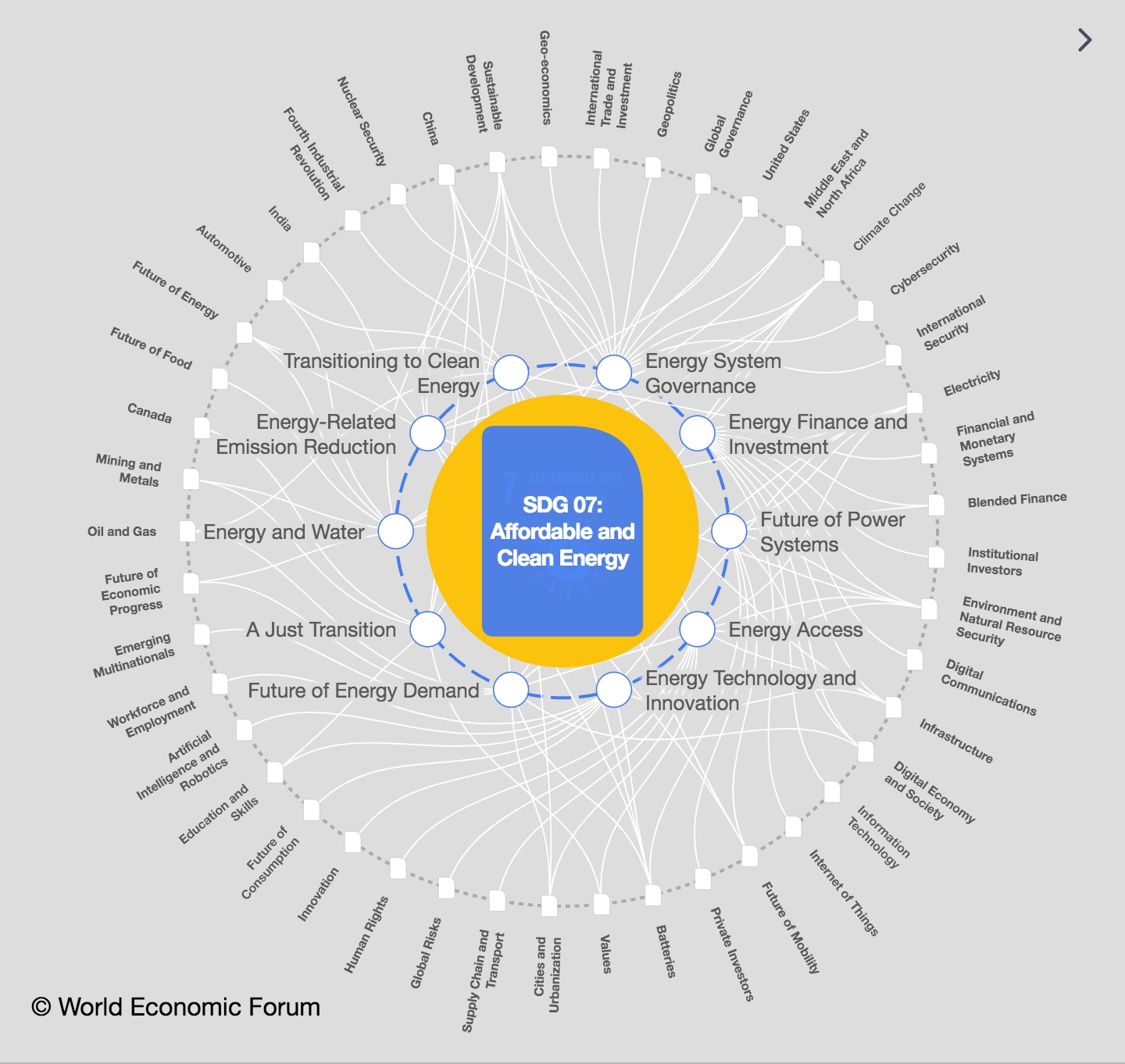These countries are making unexpected gains in their energy transitions. Here's why

While some nations have been leading the Forum’s Energy Transition Index score for a decade, others are now seeing seismic changes to their score. Image: Unsplash/Jason Blackeye

Get involved with our crowdsourced digital platform to deliver impact at scale
Stay up to date:
SDG 07: Affordable and Clean Energy
Listen to the article
- Despite the singular global goal of net zero emissions, countries will have to find their own paths to reach it, and the routes are many and varied.
- While some nations have been leading the Forum’s Energy Transition Index score for a decade, others are now seeing seismic changes to their score.
- So which countries are making unexpected progress in their energy transitions, and what’s behind this improvement?
The world has a singular goal of net zero emissions and yet no two countries will have the same energy transition strategy.
Over the past decade, global scores for the World Economic Forum’s Energy Transition Index – a benchmark for a country’s energy system performance and its readiness for a secure, sustainable, affordable and reliable energy future – have improved by 10%.
Sweden, Denmark and Norway have been the top three countries in the ETI rankings during this time, benefitting from diverse energy system structures, stable regulatory frameworks, high investment in research and development, and carbon pricing schemes that incentivize greener solutions.
But some other, less developed countries have undergone seismic changes to their ETI score, accelerating towards a net-zero future faster than others.
So which countries making unexpected progress in their energy transitions, and how are they managing to achieve it?

Leading countries in equitable energy development
Out of the 120 countries in the World Economic Forum’s Fostering Effective Energy Transition 2023 report, only India and Singapore are advancing across all of the three categories – equitable, secure and sustainable – illustrating just how challenging the transition is. Development has been uneven, and countries much lower in the overall ranking can still be “leading” in other ways.
Countries that show strong transition momentum around equity, for example, include Kenya, ranked 46 overall, and Tunisia, ranked 89.
Kenya has made “aggressive efforts towards transition readiness” by improving its regulatory frameworks, innovation and infrastructure while also addressing social inequality and affordability, the report says. Kenya’s Energy Act of 2019 aims to provide energy for everyone while reducing its greenhouse gas emissions. Meanwhile, its focus on designing and implementing energy plans at a county rather than national level, fosters inclusiveness and energy equity, according to the World Energy Council.
And Tunisia has also put equity at the centre of its transition, with great effect. The nation’s energy demand is rising and its domestic energy resources are falling, and it’s become a major importer of gas and oil as a result. In order to keep costs down in the longer term, in 2016, the government implemented the Tunisian Solar Plan with a 30% renewable electricity target by 2030. It also has multiple other renewable energy projects underway, but leaders are mindful of energy intensity and therefore seeking ways to improve efficiency too.
Leading countries focusing on energy security
While environmental sustainability is a clear focus for many countries, the energy crisis caused by Russia’s invasion of Ukraine has led some nations to focus first and foremost on security.
Brunei Darussalam (105 in the ETI rankings), Ghana (88) and Albania (21) are the leading countries in energy security, despite being at different stages of development, the report says.
All three countries have fossil fuels as their primary energy source. But while Brunei has focused on diversifying its energy sources, Ghana and Albania have reduced energy imports and made improvements to their energy reliability.
Albania supplements its domestic energy production by importing fossil fuels, but the country is unique in the Western Balkans for its near total dependence on hydropower for electricity generation, and for being the first country in the region to adopt the European Union’s national energy and climate plans.
What's the World Economic Forum doing about the transition to clean energy?
Around 85% of Ghanaians had access to electricity as of 2018, one of the highest rates in sub-Saharan Africa, according to the International Energy Agency. And Ghana’s success in energy security is largely the result of growth in hydropower, which makes up nearly half of its electricity production, followed by domestically produced gas and oil.
Brunei Darussalam's high level of energy security stems from its overwhelming reliance on domestically produced fossil fuels, which is at odds with its decarbonization strategies. All businesses in the country emitting greenhouse gases are now required to submit emission reports, to build a transparent and reliable carbon inventory.
The countries leading in energy sustainability
Sustainability is a major priority for many countries, with a focus on energy conservation, as well as renewable energy projects and energy storage, and Estonia and Luxembourg have shown strong momentum. Estonia’s renewable energy investment continues to gather steam, with recent investment in what will become the country’s biggest wind farm.
Luxembourg, meanwhile, is looking to further reduce greenhouse gas emissions (GHG). The country imports about 95% of its energy, and yet has Europe's highest GHG emissions per capita – largely coming from its financial services, retail, manufacturing and construction sectors, according to McKinsey. But, in 2022, the country was second only to the Netherlands in reducing CO2 emissions in the EU as it placed sustainable development and energy efficiency at the centre of its decarbonization strategy.
Saudi Arabia’s sustainability momentum is also significant, and its overall ETI improvement makes it a leader in the Middle East. But there is still room for improvement, the Fostering Effective Energy Transition report concludes, particularly in the areas of energy and carbon intensity reduction.
Saudi Arabia’s Vision 2030, launched in 2016, seeks to increase its non-oil exports to reduce the dependency on oil revenues. The Public Investment Fund has already invested in a series of hydrogen-related projects and created the first voluntary carbon market in the region. The country has also invested in research and development that supports solar and wind energy growth, which will enable it to become a leader in the Middle East by “developing joint investments, research programmes, training and education, as well as incentives that help accelerate the move to electrification, energy efficiency and use of hydrogen”, the report concludes.
Don't miss any update on this topic
Create a free account and access your personalized content collection with our latest publications and analyses.
License and Republishing
World Economic Forum articles may be republished in accordance with the Creative Commons Attribution-NonCommercial-NoDerivatives 4.0 International Public License, and in accordance with our Terms of Use.
The views expressed in this article are those of the author alone and not the World Economic Forum.
The Agenda Weekly
A weekly update of the most important issues driving the global agenda
You can unsubscribe at any time using the link in our emails. For more details, review our privacy policy.
More on Energy TransitionSee all
Spencer Feingold
April 28, 2024
Lisa Donahue and Vance Scott
April 28, 2024
Margi Van Gogh and Jörgen Sandström
April 28, 2024
Robin Pomeroy and Sophia Akram
April 26, 2024
Liam Coleman
April 25, 2024








